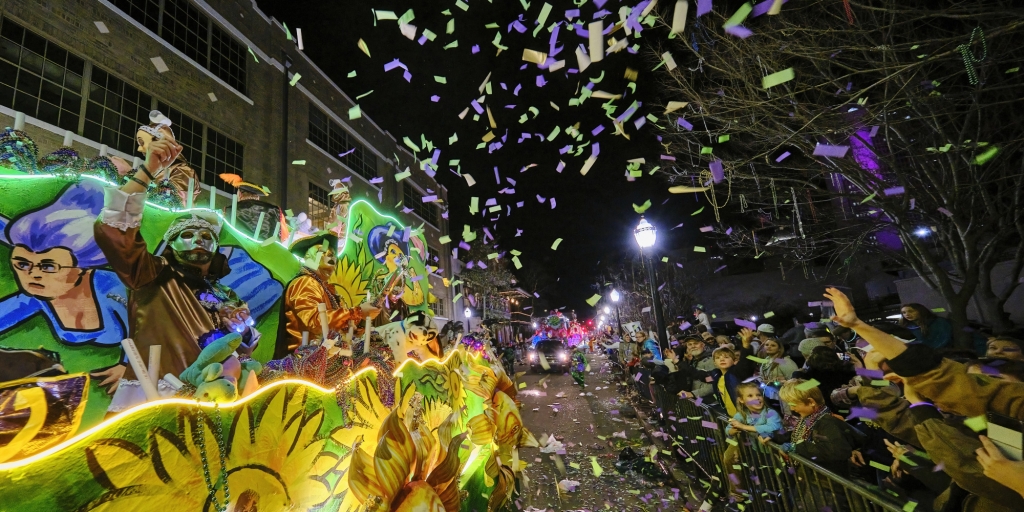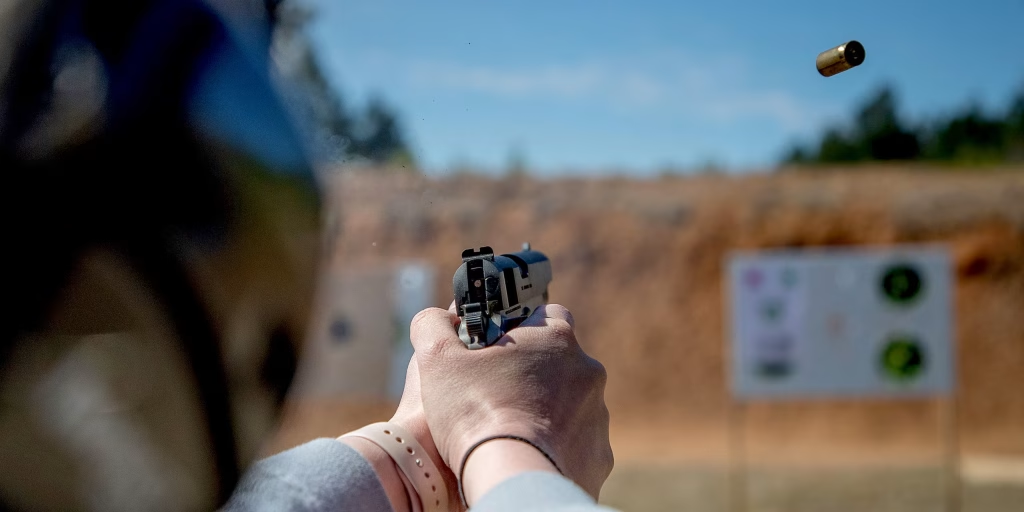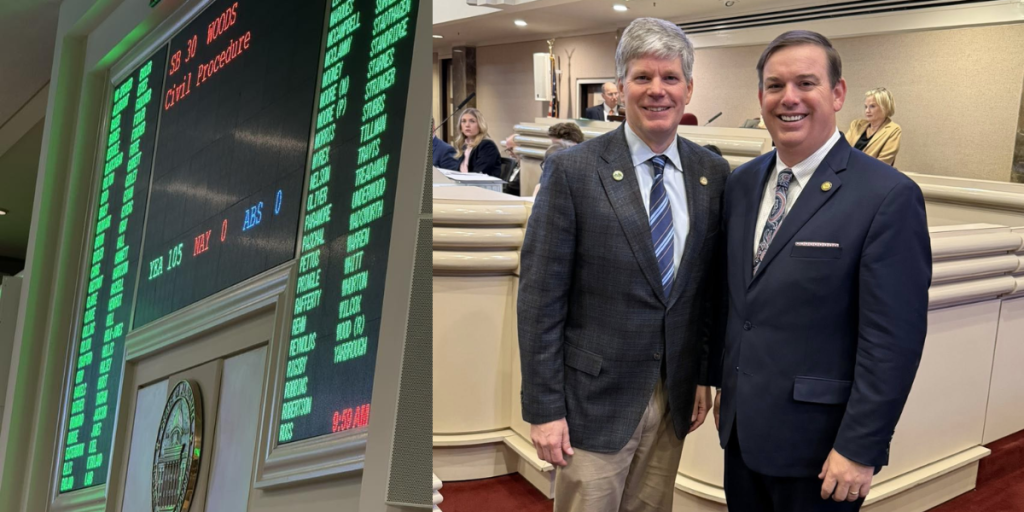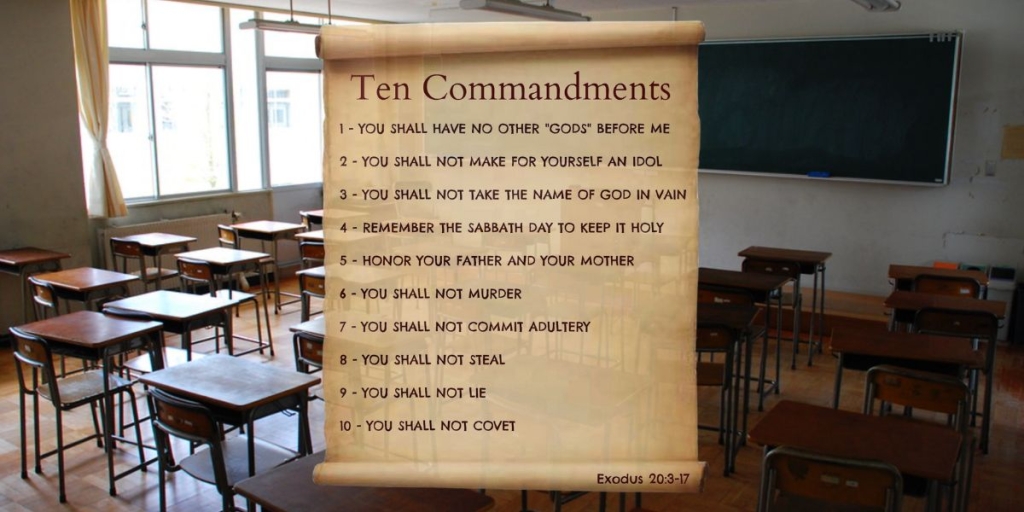On November 13, 1923 – 101 years ago today – federal agents armed with search warrants swept across Mobile, Alabama and arrested 117 individuals, including a state legislator and a future congressman, for violations of Prohibition.
Among those also arrested were a bank president, a prominent shipbuilding executive, the Mobile County Sheriff, five deputy sheriffs, several lawyers, a physician, a member of the county revenue board, and Mobile Police Chief P.J. O’Shaughnessy, who was caught while trying to escape the city on a train to New Orleans.
Agents also confiscated $100,000 worth of liquor – equivalent to $1.5 million – which included 10,000 quarts of imported whiskey as well as supplies of wine, brandies, cordials, and moonshine.
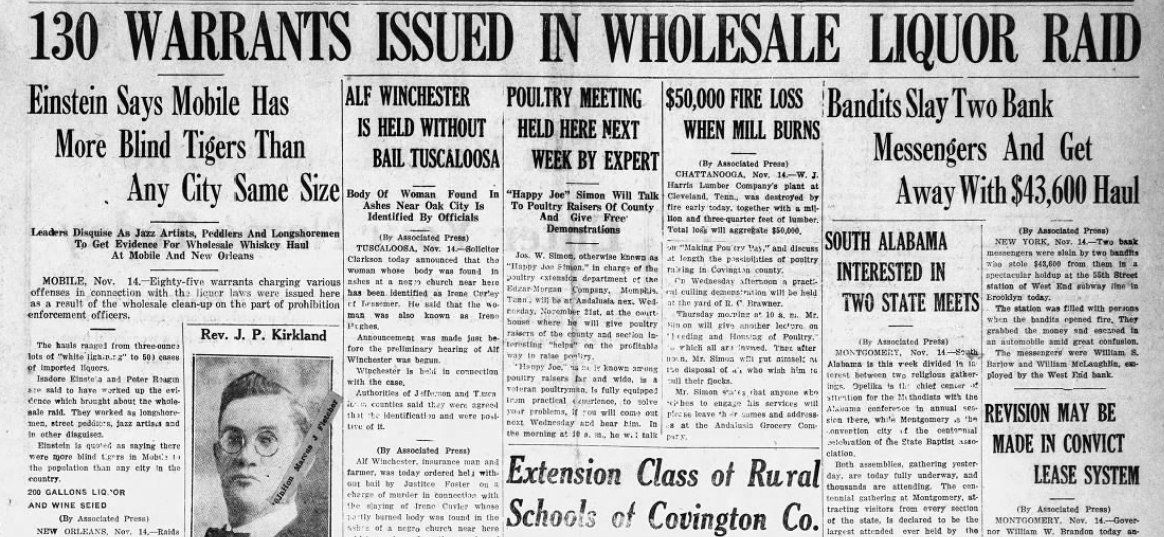
Throughout Prohibition, Mobile had proven to be an oasis of liquor in otherwise dry Alabama because of its coastal local, Catholic population, and carefree Mardi Gras attitude.
Ships filled with every imaginable intoxicant anchored just beyond the three-mile limit of Mobile’s Gulf coast, which allowed anyone with a thirst and a boat to easily purchase as much illegal liquor as they desired, and moonshiners supplied rivers of hooch to the African-American portions of the city
Protection bribes paid to the local law enforcement officials ensured no one was arrested…at least until the federal Prohibition agents took action.
In retaliation, local officials arrested U.S. Attorney Aubrey Boyles, who directed the raid, on false and trumped up charges of attempted bribery. Releasing him from the outlandish charges required the direct involvement of U.S. Attorney General Harlan Fiske Stone over a nine month period.
While Boyles was out of commission, a young lawyer named Hugo Black was brought in as a special prosecutor to convict the 117 Volstead Act violators who had been arrested.
Black and his exceptional legal skills had been previously used to combat a much smaller bootlegging and saloon operation in Jefferson County.
A member of the Ku Klux Klan at the time, Black would go on to be elected to the U.S. Senate and later received an appointment to the U.S. Supreme Court by President Franklin Roosevelt. He would prove to be one of the highest courts most liberal jurists.
One of the leaders of the Mobile liquor ring who was initially convicted by Black but had charges vacated on appeal was Frank Boykin, a businessman and political bon vivant who later served 14 terms representing Mobile in the U.S. House.
When a crucial telegram Black sought as evidence for the prosecution turned up missing, Boykin told the judge, “I ate it.”
This story originally appeared in The Art of Alabama Politics, an outlet dedicated to the the wild, weird, and wonderful history of Alabama politics.







